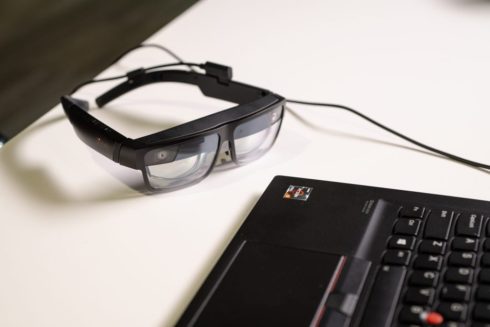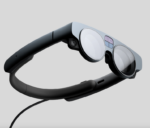
Lenovo unveiled this week at CES new AR smart glasses designed to change the way employees interact with their workspaces whether they’re working remotely or from the office. The company expects the ThinkReality A3 lightweight AR smart glasses to be available later this year.
“As increasingly distributed workforces and hybrid work models become the reality of a new normal, small and large businesses around the world are looking to adopt new technologies for smart collaboration, increased efficiency, and lower downtimes,” Lenovo wrote in its announcement.
RELATED CONTENT: WFH reveals an ‘I’ in team
The company will also provide a PC edition for virtual monitors. The ThinkReality A3 PC Edition enables users to see large monitors in their field of view and to use Windows software tools apps. The glasses tether can tether to a PC or certain Motorola smartphones via a USB-C cable, the company explained.
The glasses can also be used in more complex environments such as factory floors, labs, retail, and hospitality spaces with an industrial edition. Because the Industrial Edition is supported by the ThinkReality software platform, customers can build, deploy, and manage mixed reality applications on a global scale, according to Lenovo in a post.
“The A3 is a next generation augmented reality solution – light, powerful and versatile. The smart glasses are part of a comprehensive integrated digital solution from Lenovo that includes the advanced AR device, ThinkReality software, and Motorola mobile phones. Whether working in virtual spaces or supporting remote assistance, the ThinkReality A3 enhances workers’ abilities to do more wherever they are,” said Jon Pershke, Lenovo’s vice president of strategy and emerging business at Intelligent Device Group.
The new solution is also part of Lenovo’s efforts to “accelerate adoption of the next generation of wearable computing” within the enterprise.
In addition to the A3 smart glasses, Lenovo also produces the A6 headset as well as the mirage VR S3 for enterprises that want to take it a step further into total VR immersion for use cases such as soft-skill training.






